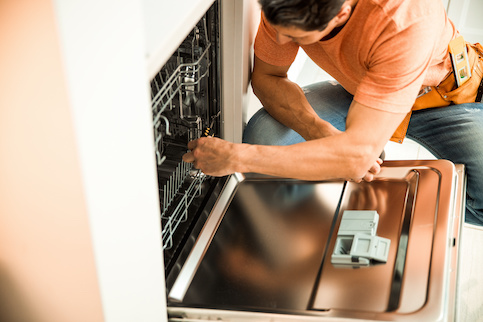Home Equity Calculator
As you pay off your mortgage and as the value of your home increases, you build equity. Our home equity calculator can help you figure out how much equity you have in your home.
Payment information is not a determination of eligibility. This calculator is provided for estimation purposes only, and is based on your self-reported information and aggregate national averages.
What is Home Equity?
You can think of home equity as the amount of your house that you currently own.
Most people borrow money to buy a home. As you pay down your mortgage balance, you build equity and own a larger percentage of your home. How much equity you have is calculated by taking your home’s current market value and subtracting what you owe on it.
Keep in mind that the value of your home can fluctuate, which affects how much equity you have.
Using Our Home Equity Calculator
To estimate how much equity you have, enter the following details into the equity calculator:
- Estimated home value. The most accurate way to know the value of your home is to appraise it. Lenders will typically require an appraisal before allowing you to borrow equity. If your home hasn’t been appraised recently, online tools can help you estimate your equity.
- Estimated mortgage balance. This is the amount that you still owe on your mortgage, which you can find on your most recent loan statement.
The calculator will provide your estimated home equity and loan-to-value ratio. Based on your LTV ratio, we’ll calculate how much equity you could potentially borrow.
How To Borrow Home Equity
There are several ways to borrow your home equity. Let’s look at the options.
Home Equity Loan
A home equity loan is a second mortgage that uses your home as collateral. You borrow a lump sum and pay it back in installments as a second monthly payment. Home equity loans typically come with a fixed interest rate, which means you’ll have a predictable monthly payment. This can be a helpful way to finance tuition or pay for home renovations, but if you default on the loan, your lender could foreclose on your home.
HELOC
A home equity line of credit is another second mortgage that uses your home as collateral. Instead of borrowing a lump sum, your equity establishes a line of credit you can use as needed. This can be a helpful way to pay for ongoing projects where you’re not sure exactly how much you’ll need to borrow. A HELOC lets you spend your credit during the draw period, which typically lasts up to 10 years. After that, you’ll enter the repayment period, which usually lasts 10 to 20 years.
HELOCs typically have a variable interest rate, so your minimum payment can change from month to month. As with a home equity loan, you risk losing your home to foreclosure if you can’t keep up with the payments.
Cash-Out Refinance
With a cash-out refinance, you take out a new mortgage based on your home’s current value, pay off your existing mortgage and keep the difference in cash. Unlike a home equity loan or HELOC, this isn’t a second mortgage – it’s a replacement mortgage. The upside is that you can borrow equity and repay it with your new mortgage payment. However, you’ll be increasing your loan balance and resetting your loan term.
Ready To Refinance?
Find a refinance lender that will work with your unique financial situation.
What Can You Use Home Equity For?
You can borrow equity to pay for anything you want, but since you’re taking on debt that’s secured by your home, it’s recommended you use the money for something that’s worth the resik.
Home Repairs And Renovations
Many homeowners borrow equity to pay for repairs and renovations. This can increase the value of your home – and grow your equity – while you enjoy living in an updated home.
Debt Consolidation
Another reason why homeowners borrow equity is to consolidate high-interest debts, such as credit cards. Credit cards often come with a high annual percentage rate, which means you pay a lot of interest if you carry a balance. Home equity loans and HELOCs typically have lower interest rates than unsecured forms of credit, saving you money. You also can streamline your finances and pay your consolidated debts with a single payment instead of one for each account.
Tuition Costs
If you’re going back to school or putting someone through college, you can borrow equity to pay tuition and living expenses. Home equity loans and HELOCs often have lower interest rates than private student loans, saving you money on your education.
Starting A Business
If you want to open a business and need startup cash, you can borrow your equity and invest it in yourself. Home equity loans and HELOCs typically have lower interest rates than business loans.
FAQ
Here are answers to some common questions about home equity.
More Calculators
Use our toolbox of calculators to take the guesswork out of your home budget. We factor in all the variables so you don’t have to.





